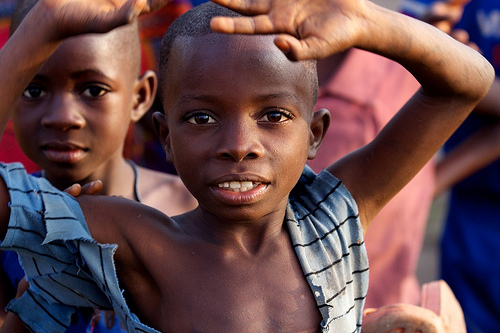 International adoption programs in the Democratic Republic of Congo need advocacy! I have seen it before and I see it now. An international adoption program that the U.S. State Department identifies as a problem and then the country is closed to international adoption. This is not a new phenomenon and history will tell you how to identify a targeted program.
International adoption programs in the Democratic Republic of Congo need advocacy! I have seen it before and I see it now. An international adoption program that the U.S. State Department identifies as a problem and then the country is closed to international adoption. This is not a new phenomenon and history will tell you how to identify a targeted program.
Why are international adoptions programs targeted?
- Significant increase in international adoptions happen in country;
- U.S. Embassy issuing orphan visas becomes overwhelmed with work and backlogged; and
- A high poverty country and suspicion of corruption in process.
International adoption history provides the following:
Adoptions from Cambodia increased from 1999 with 161 adoptions to a dramatic 797 the following year. In December, 2001 all adoptions were suspended and after 2006 any residual adoptions have ceased and no orphans have been given an orphan visa by the U.S. government. The U.S. State department began investigating adoptions after the dramatic increase and found corruption and fraud in an undisclosed amount of adoptions and adoptions were then ceased. Since the closure of international adoption from Cambodia the number of orphanages in Cambodia has doubled. There was truly fraud and corruption in international adoptions in Cambodia. Often the fraud and corruption was in the process and not that a child was not an orphan but other times it was the later. Since 2006 Cambodia has worked at implementing the Hague Convention on Inter-Country Adoption and is now a party to the convention. The U.S. State Department has determined that Cambodia does not have proper implementation of the Convention and has not approved a U.S. partnership (adoptions) with them at this time.
Over the past ten years over 29,000 children have been adopted from Guatemala by U.S. parents. In 1999 there were only 100 adoptions into the U.S. and at the highest point in 2007 there were 4726 adoptions from Guatemala into the United States. This increased created pressure and a significant amount of work on the U.S. Embassy in Guatemala. It also increased suspicions of adoption fraud and corruptions. As with Cambodia problems were discovered in the international adoptions from Guatemala and international adoptions from Guatemala were closed in September 2008 by the Guatemalan National Adoption Council. Guatemala has since implemented the Hague Convention but the U.S. State Department and Guatemala have not moved forward with international adoptions at this time.
Vietnam has a very similar story… in 2008 U.S. families adopted 135,813 US children. This is 17 times more than all international adoptions in one year from all countries combined. Most recently in Ethiopian adoptions: approximately two years ago, Ethiopia was being investigated for fraud and corruption in adoptions and several stories surfaced. However, this time adoption professionals, adoption agencies and adoptive parents determined that the orphans of Ethiopia could not suffer from another country being closed. They joined together to support ethical and transparent international adoptions in Ethiopia and requested the communication, cooperation and support of their Congressional leaders and the U.S. State Department. The U.S. State Department worked alongside of these groups and the Ethiopian government to create a plan for more ethical and safer international adoptions in the best interest of the Ethiopian orphans. US State Department and US Immigration Services (USCIS) implemented the process of Pre Adoption Immigration Review (PAIR). This has created stability and transparency in the Ethiopian process and most importantly created a means to continue international adoptions for the orphans of Ethiopia.
When an international adoption process is closed, orphans suffer. There is no other way of making the statement. Orphans have the fundamental human right to have a family. If their biological family cannot care for them and there is no one in their home country to adopt them; international adoption is their right. However, it must be done in an ethical way and we are fully commited to making sure that DRC adoptions can not only continue, but continue in an ethical way. This can be a challenge in the midst of differing cultural norms, political agendas and intense poverty.
DRC has had a significant increase in international adoptions. MLJ Adoptions has alone processed more than 50% of the international adoptions from DRC in the past 2 years. Currently, the embassy is extremely busy with orphan visa investigations. It is time for all parties involved in the process to work together for the good of the Congo orphan. I am personally committed and MLJ Adoptions is committed to working with the U.S. State Department, DRC government, other agencies and adoptive parents to resolve any issues in DRC. We are committed to NOT stopping international adoptions from DRC but finding solutions by working together and making efforts to resolve even when it might be a more difficult path than just stopping the adoptions. We are committed to ensuring that ethical standards are maintained and adoptions are completed in an ethical manner. I have spent many hours in DRC orphanages and there is a desperate need for international adoption.
We are calling for:
- Advocating for a common principal that adoptions should not be halted by US but that we should work together to resolve issues;
- Advocating for independent international adoptions by non-licensed, bonded or insured providers to halt; and
- Advocating for a process to improve ethical considerations and transparency in the process.
Photo Credit: John O’Keefe
For more information about MLJ Adoptions’ international adoption programs, please click here.
